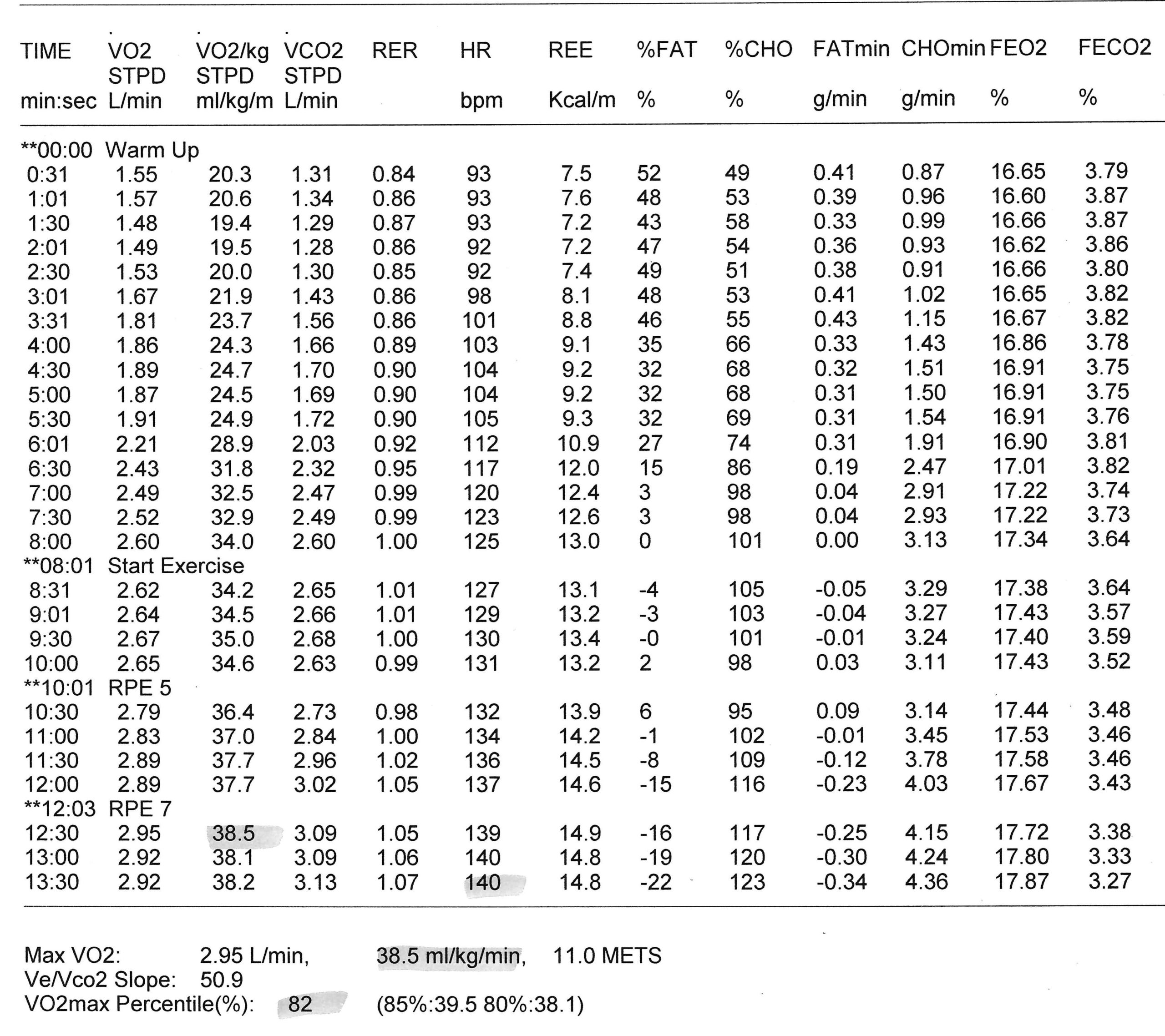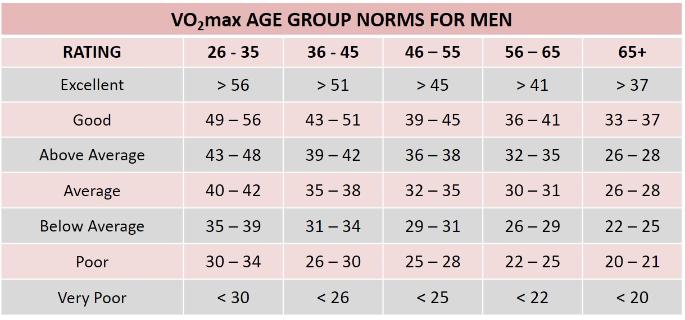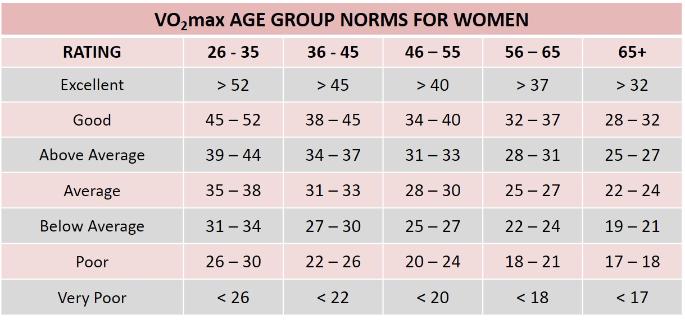Tip #18: Do you need a VO2max test?
Obesity levels for the senior population in the U.S. are now over 40 percent. If you are a former high school/college/post-college athlete who has been on the couch for the past 20-30+ years, this series of twice-monthly (1st and 15th of the month) tips will show you how to resume an active lifestyle.
Fortunately, numerous studies have confirmed that it is never too late to resume an active lifestyle. I will show you how to reduce your fitness age, a more reliable indicator of longevity than your BMI, by 20+ years over the next 12-24 months. You will definitely be healthier, happier, and an inspiration for your family, friends, and colleagues. What’s better than that?
Do you need a VO2max test?
You will ride a stationary bike during 15-20 minutes of gradually increasing resistance until exhaustion. You will wear a face mask. The volume and gas concentrations of inspired and expired air is measured.
 Your results will look similar to the following report, essentially a record of your heart rate, percentage of fat and carbohydrate energy being expended, and other measures every 30 seconds until exhaustion. Note how the use of fat energy (%FAT) declines, while the use of carbohydrate energy (%CHO) increases, as the warmup is completed. Then, the use of fat energy ceases almost entirely as the intensity of the effort increases further during the actual test effort.
Your results will look similar to the following report, essentially a record of your heart rate, percentage of fat and carbohydrate energy being expended, and other measures every 30 seconds until exhaustion. Note how the use of fat energy (%FAT) declines, while the use of carbohydrate energy (%CHO) increases, as the warmup is completed. Then, the use of fat energy ceases almost entirely as the intensity of the effort increases further during the actual test effort.
 How good is a VO2max score of 38.5? It depends on your age. Here are the VO2max age group norms for men and women.
How good is a VO2max score of 38.5? It depends on your age. Here are the VO2max age group norms for men and women.

 Be aware that your VO2max score is not a predictor of competitive success. It is an important individual measure of your cardiovascular fitness at a point in time, which can improve or decline depending on your age, lifestyle, and competitive training. Typically, your VO2max will decline with age, whether you are athletic or not. The decline is just slower in athletic individuals.
Be aware that your VO2max score is not a predictor of competitive success. It is an important individual measure of your cardiovascular fitness at a point in time, which can improve or decline depending on your age, lifestyle, and competitive training. Typically, your VO2max will decline with age, whether you are athletic or not. The decline is just slower in athletic individuals.
What have I learned?
Any questions?
Tip #19 Preview: How important is your lactate threshold?
